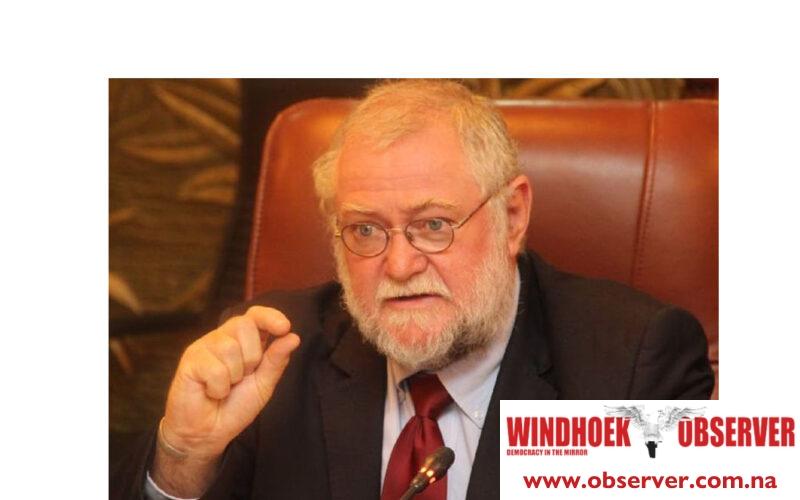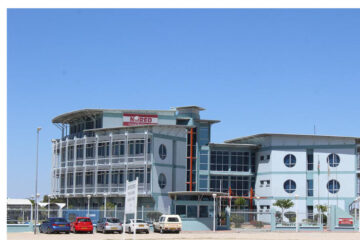Niël Terblanché
Headspring Investments, a subsidiary of Russian-owned Rosatom Uranium One, has declared its openness to constructive dialogue and its efforts to engage with all stakeholders.
The company also acknowledged the need for a comprehensive independent assessment of facilities, processes, and technologies when implementing geological exploration projects in Namibia. These measures also include facilitating educational visits to In Situ Leaching (ISL) mining operations abroad to demonstrate their environmentally friendly practices.
Earlier this week the Minister of Agriculture, Water Resources, and Land Reform, Calle Schlettwein, took a firm stand against uranium exploration activities by Headspring Investments.
Schlettwein’s stance is set against the backdrop of escalating concerns over the potential risks posed to the Stampriet Artesian Basin and is aimed at protecting one of Namibia’s most critical natural resources
Headspring Investments’ proposal to utilize the In Situ Leaching (ISL) method for uranium mining within the basin has sparked widespread resistance from both the farming community and environmental activists.
Critics argue that such activities could contaminate, or worse, poison the aquifer, jeopardizing the water supply for approximately 80,000 people who rely on it for domestic, livestock, and irrigation purposes across the Omaheke and parts of the Hardap regions.
In alignment with the Minister’s position, Riaan van Rooyen, spokesperson for Headspring Investments in Namibia, has expressed the company’s commitment to transparency, environmental safety, and security.
Van Rooyen reiterated the firm’s openness to constructive dialogue and its efforts to engage with all stakeholders, including facilitating educational visits to ISR mining operations abroad and demonstrating their environmentally friendly practices.
Schlettwein revoked the company’s drilling permits on November 9, 2021, citing non-compliance with specific conditions against the background of the government’s prioritization of environmental integrity over exploration endeavours, particularly in light of potential radioactive contamination risks. Headspring Investments, which has been actively conducting drilling operations since 2012, now faces significant scrutiny. The company’s past activities, encompassing around 600 exploration and 36 hydrogeological and monitoring boreholes across 39 farms, initially received the green light with Environmental Clearance Certificates (ECCs) and drilling permits.
Schlettwein indicated that the adequacy of these permits, especially concerning the impact on the Stampriet Aquifer, has now come into question.
The minister’s actions reflect a broader commitment to safeguarding Namibia’s environmental assets and food security, taking into account the country’s transboundary water management obligations with neighbouring South Africa and Botswana. In this context, Schlettwein said that engaging with international bodies like UNESCO and the International Atomic Energy Agency for expert advice has become a critical component of the ministry’s strategy to mitigate environmental risks.
He indicated that an inter-ministerial Technical Committee is already busy preparing a presentation on its findings on the impact of Headspring Investment’s activities to the Ministerial Committee.
According to the minister, the outcome of this deliberation will play a crucial role in determining the future of nuclear fuel exploration within the sensitive zones of the Stampriet Aquifer.




